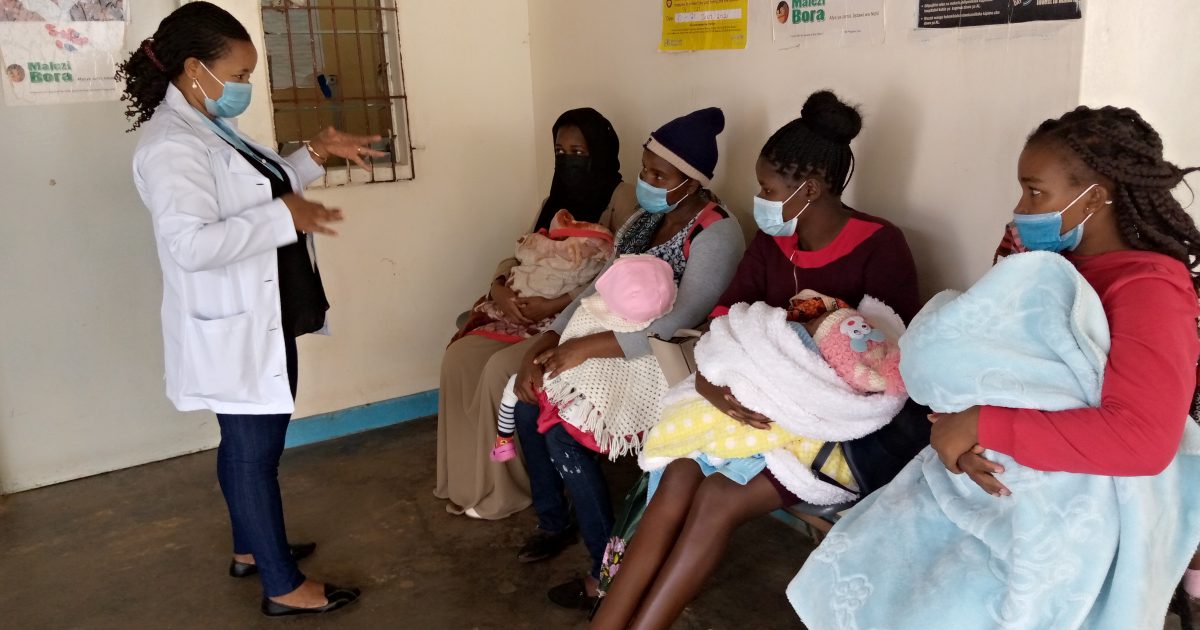The National Aids Control Council (NACC) is set to launch an HIV/AIDS implementation plan for Kwale County to curb the rising cases of HIV infections.
The implementation plan is a blueprint that will offer a comprehensive guide and approach in flattening the infection curve.
The overriding mandate of the NACC is to coordinate stakeholders in the multisectoral response to HIV and AIDS in Kenya.
NACC is also responsible for providing policy and strategic framework for mobilization and coordinating resources for the prevention of HIV transmission and provision of care and support to the infected and affected people in Kenya.
According to the council, the rate of new infections in Kwale is alarming as statistics put close to 300 people annually getting infected with the virus.
Speaking to KNA, Coast Regional Coordinator for NACC Omar Mwanjama said, the council is putting a lot of effort into creating awareness across the county to help people avoid contracting the virus.
Mwanjama added that comprehensive knowledge on HIV/AIDS like mode of transmission and safety measures can greatly reduce the alarming figures.
”HIV can infect anybody in the society. There is a need for people to get informed about this virus,” Mwanjama said.
According to the statistics released by the council, Kwale County has 16,692 people living with HIV with the rate of infection standing at 2.9 per cent.
Furthermore, the council says close to 270 people succumb to HIV or HIV-related complications annually.
The regional HIV coordinator stressed the need for people to take HIV tests.
He noted that residents are reluctant in taking the tests, creating obstacles in dealing with the global epidemic.
Mwanjama added that through such tests, the government and its partners could easily plan for every victim in the provision of Antiretroviral (ARVs) drugs used to treat HIV.
‘‘Let’s not fear visiting the Voluntary Counseling Testing Centers (VCTs) because knowing your HIV status is the best thing an individual can ever do. Through that status, people can stay away from infections,’’Mwanjama added.
He said currently, every health center in Kwale County has a well-equipped laboratory to carry out HIV tests.
According to the HIV/AIDS council, women in the county are at a high risk of contracting the virus compared to their male counterparts.
The council says many women in the county are illiterate consequently making them vulnerable to the virus.
Kwale County, like other coastal counties, has been trailing behind in girl child education with many parents still weighing the option of taking girls to school.
He said many families view girls as sources of wealth thus a larger percentage being forced into early marriages.
He added, “furthermore, the county is an epicenter for outdated culture like wife inheritance which could increase the spread of the virus within families.”
Mwajuma noted that the county is at risk of losing the young generation to the monster as statistics show that 2,600 people between the ages of 10-25 years are living with HIV.
He added that there is a need for relevant authorities to direct efforts and prevent teens from contracting the virus.
“The people between the age of 10 -19 years are very critical on issues of HIV infection. These are young boys and girls who are still in the discovery stage,” Mwanjama added.
The council said it has proposed to the county HIV/AIDS committee to incorporate youth representatives to find ways of curbing the spread of the virus to the young generation.
The regional HIV coordinator noted that a change in the prevention mechanisms will make the stakeholders triumph over the virus.
He asked the County Department of Health, Education, and Non-Governmental Organizations (NGOs) to design programs that would educate society about the virus.
The AIDS council says areas close to the Indian Ocean and along major highways like Likoni-Lunga Lunga Highway and Mombasa -Nairobi Highway have high numbers of people infected with the virus.
Kwale County has been on the record as a world tourist destination center and the Diani tourist resort in the South Coast is home to lucrative hotels leading to an increase in sexual activities from commercial sex workers.
However, the council noted that it has amplified its surveillance to such areas and more measures, especially the distribution of condoms to commercial sex workers and the general public to reduce infection.
Mwanjama urged key players in the fight against HIV /AIDS to extend their services to all parts of the coastal county.
He noted that remote areas like Kinango and Lunga Lunga sub-counties have been neglected posing a great challenge in constricting the virus.
“All players, especially the county government should have a strategy of reaching people in the remote areas. Isolating these places will cause more harm to our society,” Mwanjama said.
The regional coordinator urged the county government not to ignore HIV as it focuses on the Covid -19 pandemic.
By Raymond Zaka and Hussein Abdullahi




